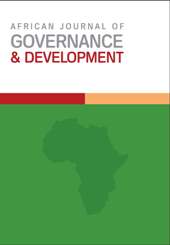The Role of Cultural Institutions in Sustainable Management of Water for Production: A Case Study of Karamoja Sub-region in Uganda
Main Article Content
Abstract
This study examines the role of cultural institutions in sustainable water management for production in the Karamoja sub-region of Uganda. Water is crucial for human survival and sustainable development, intersecting with critical global challenges such as food security, health, and poverty eradication. Despite various government-driven models for water management, including Community-Based Management Systems (CBMS), Farmer Field Schools (FFS), and Public-Private Partnerships (PPPs), the exclusion of cultural institutions undermines the sustainability and operational efficiency of water management facilities. Drawing on a qualitative exploratory design involving 252 participants from nine districts, we investigated the reasons behind the exclusion of cultural institutions and the potential benefits of their integration into existing water management models. The findings reveal significant barriers, such as rigid administrative structures, profit-driven motives, and capacity limitations, which hinder the effective collaboration between formal institutions and cultural leaders. The study underscores the critical need for policy reforms and capacity-building initiatives to establish inclusive frameworks that integrate cultural institutions into formal water management systems. The researchers also highlight the potential for enhanced community ownership, improved sustainability, and utilisation of indigenous knowledge. Future research should focus on developing integrative frameworks, conducting longitudinal impact assessments, and exploring successful cultural institution integration case studies in different regions to inform policy and practice.
Article Details

This work is licensed under a Creative Commons Attribution-NonCommercial-NoDerivatives 4.0 International License.
